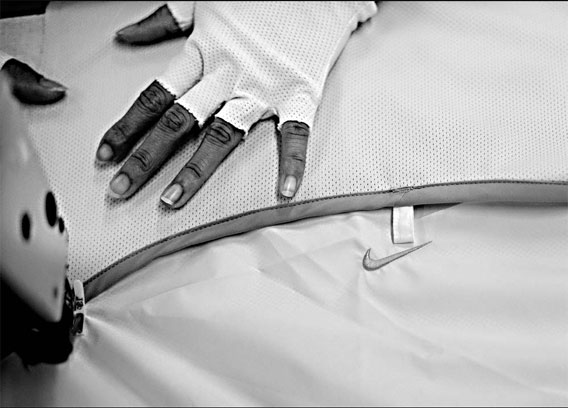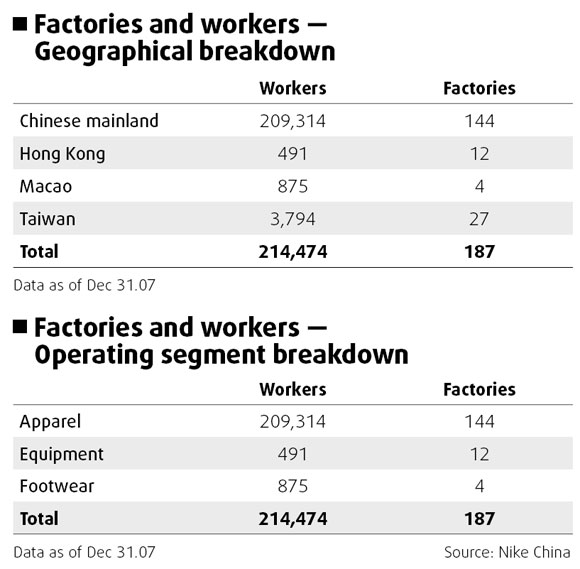


Sports apparel giant Nike recently launched its 2008 Corporate Social Responsibility (CSR) China report, which highlights its efforts to improving working conditions in its contract factories through a holistic, integrated business approach to its supply chain.
Nike entered China in 1981 with its sponsorship of the Chinese National Basketball Team, and has since turned the country into its largest single sourcing market and second-largest consumer source.
Today, Nike's manufacturers in China employ more than 210,000 workers. About one out of every three pairs of Nike shoes it sells is made in China.
Global strategy
According to the CSR report, Nike addresses working conditions through a strong commitment to transparency and informed, constructive dialogue with contract factory management, shareholders and the broader industry.
It believes that addressing these issues not only benefits workers but also can be a catalyst for growth and innovation within Nike.
The report says that Nike believes it cannot make good shoes in bad factories.
Globally, Nike has set an aggressive target for corporate responsibility by 2010. Key labor condition targets include eliminating excessive overtime, implementing tailored human resource management systems and education training for workers and implementing freedom of association educational programs in all its contract factories.
Worker profile
Nike estimates that 80 percent of its workers in its global supply chain are women ages 18 to 24. In China, typically more than 70 percent of workers at Nike-contracted factories are young women who have migrated from rural areas to coastal regions.
Nike says it works with contract factories to help them more effectively communicate with these migrant workers, help them understand their rights and ensure they receive the same entitlements and benefits as local workers, and accommodate their basic social needs, the report says.
As an example, three contract factories based in coastal Qingdao recruited workers from Northwestern China's Xinjiang Uygur autonomous region. They are largely minority nationalities, far from home, and regional cultural and linguistic differences also create communication issues.
To help the workers adjust, all three factories have established new cafeteria facilities to prepare food that meets their religious requirements, facilities for prayer and guest rooms in the workers' dormitories to host visiting family members.
China labor law
Last year, China passed important legislation intended to increase protection of workers' rights - the Labor Contract Law and the Employment Promotion Law.
The Labor Contract Law expands rights for individual employees and enhances collective rights through unions and employee representative congresses. And the latter is an important addition to workers' right legislation.
Nike says it supports a regulatory environment that strengthens legal protection for workers and promotes decent working conditions.
To help factories and workers understand the law, it conducted training in contracted factories. Nearly 90 percent of contracted factories participated in this initial forum, and other briefings were held as the implementing regulations were issued.
Since the law went into effect on January 1 several cases have been reported of workers using the new regulations to obtain their rights, including overtime pay, equal employment and social insurance.
Constructive partnership
According to the report, the top three management issues arising from Nike's audit in China in 2007 are an inadequate system to enforce compliance with Nike's code of conduct, lack of knowledge and training around compliance, as well as insufficient communication internally and externally.
Other labor-related challenges include falsification of factory documents, such as payroll records, lack of effective grievance systems for workers; hiring practices to ensure minimum wage standards are met and high worker turnover.
Nike says it is addressing these issues through a master action plan that includes a list of prioritized actions agreed to by Nike and factory management. Together with the contract factory, it uses the plan to track progress.
The company expects revenues in China to reach $1 billion this fiscal year, contributing to total Nike Inc revenues of more than $16 billion.

(China Daily 04/07/2008 page8)













